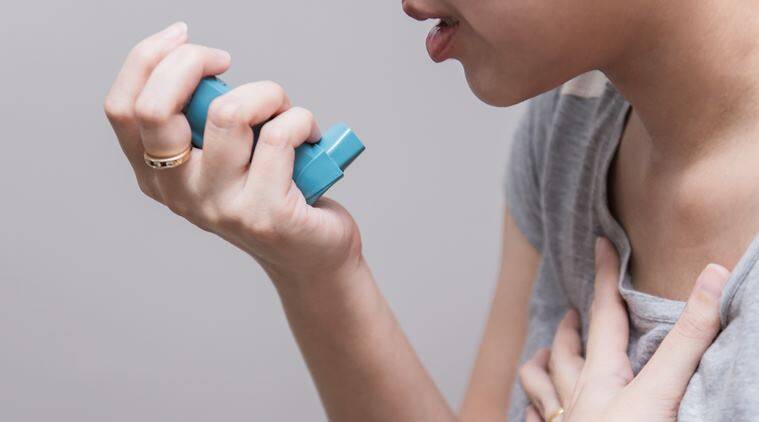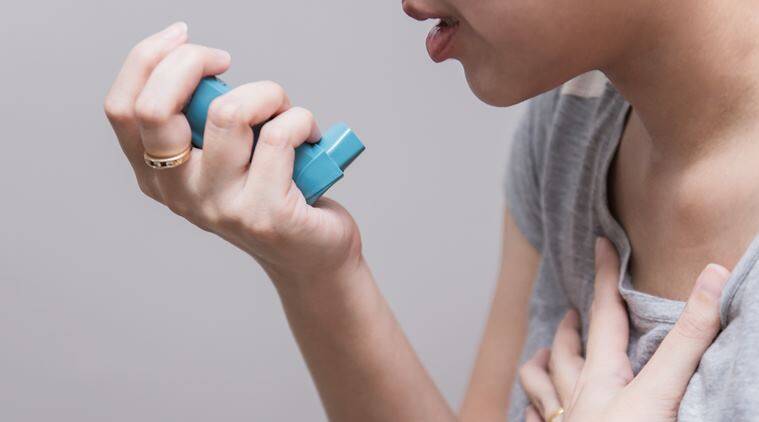The steroids in Covid-19 (STOIC) trial potentially provide the first easily accessible effective intervention in early treatment of Covid-19, researchers have said.
Inhaled Budesonide, a steroid used to treat asthma, if given early to Covid-19 patients with mild symptoms, scales down the need for urgent medical care and reduces recovery time, a new study published in The Lancet Respiratory Medicine has said.
The steroids in Covid-19 (STOIC) trial potentially provide the first easily accessible effective intervention in early treatment of Covid-19, researchers have said.
Sanjay Ramakrishnan from the Nuffield department of Clinical Medicine, University of Oxford, UK, and lead author of the study, said the phase 2 clinical trial was done in the community in Oxfordshire, UK, and the aim was to evaluate the efficacy of the widely used inhaled glucocorticoid budesonide in individuals with early Covid-19 infection in the community.
The onset of Covid-19 is usually mild, providing a potential window to intervene before the development of severe disease. From July 16 to December 9, 2020, 146 participants were randomly assigned — 73 to usual care and 73 to budesonide.
The study results showed that inhaled budesonide significantly reduced the risk of urgent care visit, emergency department assessment or hospitalisation versus the usual care arm by 91 percent.
Dr Sundeep Salvi, chair at the chronic respiratory diseases section for the Global Burden of Disease Study for India, (who is not attached with the Lancet study) told The Indian Express that the study results have come as a pleasant surprise as an asthma drug can help alleviate some of the suffering of Covid-19 patients.
“It is important to remember here that the trial participants were people with mild symptoms and did not include those with severe symptoms or hospitalisation. The study has shown the use of inhaled budesonide in early mild cases has a 90 per cent chance of preventing hospitalisation,” Dr Salvi, who is also on the board of directors of the Global Initiative for Chronic Obstructive Lung Disease, said. It can be a potential game changer, which is widely available and safe, Dr Salvi added.
In the Lancet study, patients in the budesonide arm received a budesonide dry powder inhaler at a dose of 800 μg twice a day. Participants, administered budesonide, were asked to stop taking the inhaler when they felt they had recovered or if they had a primary outcome (Covid-19-related urgent care visit, emergency department assessment or hospitalisation).
Inhaled budesonide was taken for a median duration of seven days in the study. In the other group, the usual care was supportive therapy, with the National Health Service (NHS) advising patients with Covid-19 symptoms to take antipyretics for symptoms of fever (products containing paracetamol, or non-steroidal anti-inflammatories such as aspirin and ibuprofen) and honey for symptoms of cough.
Inhaled budesonide in early Covid-19 infection significantly reduced the likelihood of requiring urgent care, emergency department consultation and hospitalisation, the study results showed.
In another updated interim, analysis (published in medRxiv preprint by authors from the same group at Nuffield Department of Clinical Medicine and Nuffield Department of Primary Care Health Sciences, University of Oxford) showed that inhaled budesonide reduced the time to recovery by a median of three days in people with Covid-19 with risk factors for adverse outcomes.
Source: Read Full Article


